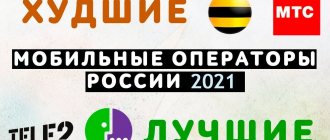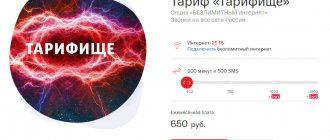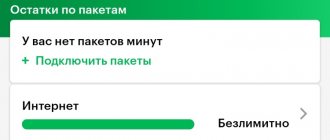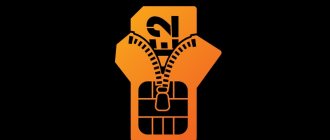| Telecommunications | 18/11/2002 |
Yuri BRYUKVIN
Mobile TeleSystems (MTS) has introduced a new tariff plan “Jeans” without a subscription fee. This pre-paid product appeared late and, apparently, will not allow the company to increase the growth rate of its subscriber base, minimally sacrificing the average monthly revenue from the sale of services per subscriber ARPU (Average Revenue Per User).
The domestic cellular communications market has almost surpassed its growth peak. Most industry analysts agree that December will see the last record surge in sales (associated with the pre-New Year rush), followed by a slowdown in subscriber base growth.
According to Advanced Communications&Media, by the end of the year about 17 million Russians will have acquired handsets, including about 5 million Muscovites. In the second quarter of 2003, the level of cellular penetration in the capital will reach 60-65% and, according to Advanced Communications & Media experts, the market will approach the point of initial saturation. Thus, from the middle of next year, the main source of growth in the customer base will be regional low-income subscribers, and one of the main tools of competition will be tariff reductions.
Two Big Three operators, VimpelCom and MegaFon, began “optimizing” tariffs last month. As Delo already reported, VimpelCom introduced two new families of tariffs “Line” and “Super” without a subscription fee, and MegaFon offered its Moscow subscribers new tariffs “Reception” with free incoming calls. (Moreover, MegaFon “does not rule out” that in 2003 this marketing initiative will be extended to the company’s regional networks, including in the North-West - author’s note).
From television advertisements and posters on the streets of the capital, it became known in advance that TeleSystems was preparing a “retaliatory strike.” However, until the official presentation of the Jeans tariff, the details of the new product were kept secret. The veil of secrecy gave rise to rumors about a “sensational offer” and “upcoming dumping”, and in network forums about cellular communications “informed persons” shared the main secret: the “distribution” of “Jeans” will cost 9-10 cents (for calls to Moskovskaya phones city telephone network"). Lenta.ru, citing sources in the largest Russian Internet portals Rambler, Yandex and Mail.ru, reported that the birth of the new tariff will be greeted with a two-hour “Internet salute”.
However, the new pre-paid product from MTS turned out to be not dumping at all, but, on the contrary, aimed at the wealthiest subscribers in this segment of the cellular market. This offer, available to consumers in 38 regions (including the North-West), looks more expensive than similar tariffs that operate in the Moscow and St. Petersburg networks of VimpelCom and, accordingly, MegaFon (see tables). Moreover, the pre-pay from MTS is structured in such a way that the ARPU indicator for this tariff plan cannot fall below $12. For comparison: for VimpelCom and MegaFon this indicator is about $10. TeleSystems says that such a 20% difference is due to a higher quality of service than that of competitors.
“The MTS pre-paid product may be late,” say analysts at the ATON investment group. — Its promotion may provoke further price reductions by competitors. So, last week, VimpelCom announced a 40% discount on the pre-paid tariff “Bi-Plus GSM”, and MegaFon made an unlimited preferential tariff for outgoing on-network calls for GSM Light Moscow subscribers at $0. 01 for every 10 sec. conversation. Thus, MTS may not achieve its goal of increasing the growth rate of its subscriber base while sacrificing minimal ARPU.”
Classic "Jeans"
There were no usage or connection fees, and there were no monthly subscription fees. All incoming calls were free of charge.
A special highlight of the tariff plan is the introduction of per-minute and per-second billing. The user could save significantly on short calls within the home region.
Calls to Moscow and the Moscow region
If you had per-second billing installed (payment from 1 second of conversation), then a connection to an MTS or Beeline subscriber in your home region cost 4 rubles. 75 kopecks. Every second is 0.08.
Calls to other subscribers in the connection zone cost more at 11 rubles 18 kopecks. in a minute. Every second – 19 kopecks.
With per-minute billing, the conditions changed - a dialogue with a client of MTS or Beeline cost 3.75 rubles. And with subscribers who connected to other cellular operators, a minute of conversation cost 7.10 rubles. The first 3 seconds were provided free of charge and were not charged.
Calls to other regions within the network were calculated at a rate of 5 rubles per minute, and dialogue with a client of other operators was calculated at 22 rubles per 60 seconds of call.
If you needed to contact a friend or relative who lives in another country, then you had to pay several times more for the conversation. In the CIS - 25 rubles per minute, in Europe - 52 rubles, in other countries and states - 78.
All prices indicated were relevant for Moscow and the Moscow region.
Messages and mobile Internet on the Jeans tariff
Outgoing SMS in Moscow and Moscow Region cost 2 rubles 25 kopecks. At the same time, the price was set for messages to subscribers from any company.
If you needed to send an SMS to a friend or colleague in another city, then one “news” cost 3.80 rubles. To another country – 5.25 rubles.
Multimedia messages were charged differently - 6.44 rubles. for each MMS sent.
The classic Jeans tariff did not provide packages for Internet traffic consumption. Users could connect a number of services to access the Internet at a profitable rate or pay for each connection to the network. For 1 MB spent, an MTS subscriber had to pay 9.90 rubles from his account.
What does a subscriber need to know about the tariff?
A very convenient offer for those who don’t make a lot of calls. At the same time, in “Super MTS” there is such a thing as a fixed component. Its size is 1.25 rubles. Other features include:
- the subscriber can choose the method of debiting funds - per minute or per second;
- with a per-minute scheme, the payment will be 5.42 rubles/min, plus a fixed fee;
- with per-second billing 7.46 rubles/s.
- the indicated prices apply within the home region and for any numbers;
- all incoming calls are free.
Important! Only those calls whose duration exceeds 3 seconds are paid.
The cost of communication with MTS subscribers throughout the country is 5 rubles per minute, for other telecom operators in Russia – 22 rubles per minute.
Tariff "Jeans and Tonic"
This tariff plan provided for different call rates based on the time the call was made. Thus, subscribers who communicate more often at night and in the evening could reduce communication costs and communicate more often with loved ones.
If a user forgot a SIM card with the Jeans tariff for 90 days (did not pay for services, did not write SMS, did not call), then a forced subscription fee of 3 rubles was debited from the account daily. If the SIM card was actively used, there was no daily payment.
Per-second billing in Moscow and Moscow Region
Calls were timed, there were 3 intervals in total:
- From 7:00 to 19:00. The most active period is when people communicate at work and make calls for personal purposes, so the rate at this time is higher than others. For 1 second of a call, an MTS or Beeline client in the connection zone had to pay 11 kopecks, and a whole minute cost 6.10 rubles. If you made a call to a client with another mobile operator, then the minute cost 11 rubles. 52 kopecks, and one second is 20 kopecks.
- From 19:00 to 24:00. There are fewer calls at this time, so the rate decreases. Beeline and MTS subscribers could be called for 5 rubles (second - 0.09), other users - for 8 rubles 81 kopecks.
- From 24:00 to 7:00. The best time for outgoing calls within the network on this tariff plan. For a minute conversation with a user who connected to Beeline or MTS, you would pay only 34 kopecks (about 0.01 per second). A call to a subscriber with another operator cost only 1.36 rubles.
Per-minute billing in Moscow and Moscow Region
- From 7:00 to 19:00. Outgoing calls within the network or to a Beeline subscriber cost 4.41 rubles. If it was necessary to contact a user who connected to another cellular company, then the cost increased - 8 rubles 13 kopecks. in 60 seconds.
- From 19:00 to 24:00. A connection to MTS or Beeline clients cost 3 rubles per minute of dialogue, and if there was another mobile operator - 6 rubles. 10 kopecks.
- From 24:00 to 7:00. The most profitable calls. Outgoing calls to friends and acquaintances from MTS and Beeline cost only 34 kopecks per minute, to other subscribers - 1 ruble.
Other calls
Tariffing for calls within Russia was not divided by time. All calls to mobile phones with an MTS SIM card cost 5 rubles, with other mobile operators - 22 rubles. per minute of dialogue.
Conditions for profitable calls in the evening and at night also applied to other countries.
- From 7:00 to 19:00. You could call the countries of the European Union for 35 rubles and 85 kopecks. In the CIS - for 35 rubles, in other countries - for 79 rubles.
- From 19:00 to 24:00. Outgoing messages to Europe cost 51 rubles and 82 kopecks, to the CIS – also 35 rubles, to other countries and countries – 77.22.
Messages and Internet
SMS messages in Moscow and Moscow Region cost 2.25 rubles, if an SMS was sent to other regions - 3.80. If you needed to write to a subscriber from another country, the message cost 5.25 rubles.
Internet traffic was paid separately; the tariff plan did not provide packages for profitable surfing on the Internet. For 1 MB, an MTS client paid 9.90 rubles. To reduce costs, you could connect a number of options that provide Internet at an affordable price.
Archived tariffs
A subscriber may need information about an outdated tariff if he continues to use it, despite the fact that it has long been closed for connection.
Lighthouse
This tariff plan was intended for smart equipment - GPS trackers, GPS navigations, smart watches, etc. By connecting to it, the subscriber selected a traffic package ranging in size from 200 MB to 900 MB. SMS messages and calls were paid separately.
The peculiarity of the tariff is that “Other subscriber’s balance” is also available, with which you can manage the account of other operator’s clients.
The absence of a subscription fee is another important difference between the tariff and other tariff plans for smart technology, for example, “Go Smart”.
A detailed description of the tariff characteristics can be found by following the link.
Smart Nonstop 082015 and 122015
This tariff had two versions and offered customers unlimited traffic at night, 11 GB of traffic during the day and unlimited calls within the network. It also included 500 minutes to all numbers in the Russian Federation and 500 SMS to all phones in the region.
Smart Nonstop is designed for smartphone. When installing a SIM card into a router or modem, access to the Internet was stopped. To get access to the Internet again, you need to enable the “Internet-VIP” or “Turbo buttons” options.
You can get acquainted with Smart Nonstop using the links: 082015 and 122015.
Strategic
Tariff plan for corporate clients. Among its features:
- unlimited calls to numbers connected to one contract;
- calls to MTS – 30 kopecks/minute;
- numbers of other operators – 60 kopecks/minute;
- no subscription fee.
You could subscribe to the tariff in mobile phone stores. Today "Strategic" is closed for transition.
Stimulus
“Stimulus” is a tariff plan that was valid only in some regions of the country, in particular in the Rostov region. Its special feature is inexpensive calls within the network and to phones of other operators within the region. There was no subscription fee. The Internet was paid for by megabytes, so it was recommended to enable optimizing options to access the network.
A detailed description is available at the link.
Base
This tariff plan was in effect for a short time, had three versions - “Basic”, “Basic 09” and “Basic 092013” and was not popular. In this regard, clients were often forced to transfer to him, which led to their justifiable indignation.
Among the features are the absence of a subscription fee and per-minute payment for outgoing calls. Calls shorter than 3 seconds were not charged. For each call longer than 3 seconds, an additional fixed component worth 1.25 rubles was charged.
Smart+
It had three versions: Smart+022015, Smart+102014, Smart+ for a year and was valid in certain regions of the country. Among the features are 6 GB of Internet and unlimited calls throughout the country within the network, 1000 minutes to all numbers in the region and 1000 SMS to all phones in the region. Initially, the tariff plan could be used in modems, but later this option was suspended. To unlock it again, you had to connect the “Turbo button” or “Internet Maxi”.
Natalia
Technical specialist, user support on mobile communications issues.
Ask a Question
If you find an error or inaccuracy on the site, please write in the comments or feedback form. I recommend checking out:
Secret tariffs from MTS The most profitable List of unlimited ones Check where the money goes Order details
Jeans
A popular tariff plan that had two versions: Jeans 0.07 and Jeans 0.07 2009. It offered per-second billing with a fixed component for a paid outgoing call in the amount of 1.25 rubles. It was recommended to use optimizing options for Internet access. It had a number of variations: Super Jeans, Jeans Classic, Jeans-Tonic, Hot Jeans. There was no subscription fee.
Lots of calls to all networks
Tariff plan without subscription fee. He offered the cost of outgoing calls from 1 to 5 minutes, as well as from 21 minutes - 3.50 rubles. From 6 to 20 minutes the cost decreased to 0.05 rubles. It was proposed to use optimizing services to access the Internet. You can get acquainted with the description of the tariff by following the link.
Super Zero
The tariff plan was available in two variations: Super Zero and Super Zero 2011. Among its features is the absence of a subscription fee. With the “Zero on MTS” option costing 3.5 rubles per day, the subscriber received 100 minutes per day of free calls within the network throughout Russia. Internet traffic was paid separately. The tariff plan was unprofitable for calls to other cellular operators in your region and throughout Russia.
Prime
Unlimited VIP tariff from MTS worth 900 rubles per month. Offered unlimited calls within the Russian Federation, unlimited Internet traffic, 500 messages within Russia. When used in a modem, 50 MB per day was provided for free, then unlimited traffic for 50 rubles per day. Today it is not available for connection, because... disadvantageous for the operator.
My Unlimited
Archived tariff with customization options. By connecting to it, the subscriber could independently select the required number of gigabytes (from 6 to 31), minutes and messages (from 300 to 900). According to the size of the selected packages, the subscription fee, which was charged daily, also changed. In-network calls in the tariff plan were free. The description is available at the link.
MTS Connect 4
Tariff plan for modems and Wi-Fi routers. Its cost was regulated depending on the connected Mini/Maxi/VIP Internet option. MTS Connect 4 was unprofitable for calls and messages: minutes and SMS on it were expensive. Now it has been replaced by the “For Laptop” tariff. Detailed description here.
Smart Unlimited
The tariff plan offers 11 GB of traffic, unlimited calls within the network in Russia, 500 minutes and 500 SMS to all numbers in the region. The subscription fee is charged daily, the cost is 16.5 rubles per day. Smart Unlimited operated only in some regions of the country; a detailed description can be found here. Not intended for modems. When installing a SIM card into a router or modem, access to the Network was suspended.
My friend
The “My Friend” tariff plan was provided free of charge during the first two weeks after connection. Then the cost was 13.50 rubles per day. The tariff provided 7 GB of traffic and 100 minutes of outgoing calls to all numbers in the region. “My Friend” is not intended for smart devices, routers and modems.
Tariff "Jeans 0.07"
One of the latest upgrades in the Jeans line. MTS decided to reduce the cost of calls in the capital without separating outgoing calls by time of day. Beeline clients also lost their benefits.
Calls in Moscow and Moscow Region
With per-second pricing, an outgoing call within the network (to an MTS number) cost 3.39 rubles, 0.06 per second. A conversation with a client of another mobile operator was much more expensive - 12.20 rubles per minute and 21 kopecks per second.
Per-minute billing offered different prices. An outgoing call to an MTS subscriber cost 2.38 rubles, to other users – 8.47 rubles.
You could call other regions for 5 rubles within the network; connections to other operators in Russia cost 22 rubles per minute. During a dialogue with a subscriber who was in another country, from 35 to 78 rubles were debited from the account.
Messaging and mobile internet
An outgoing message in the connection region (Moscow or Moscow Region) cost 2.25 rubles. If you sent an SMS to a friend or colleague in another city, the rate changed - 3.80 rubles. for one SMS. For international companies the price increased – 5.25 for each message.
No traffic package was provided as part of the tariff plan. If the user needed to go online, he had to pay 9 rubles and 90 kopecks for 1 MB. Options and turbo buttons were available to connect profitable Internet.
Archive services
In addition to archived tariff plans, MTS also has services that were previously active, but are now unavailable for connection.
Turbo bonus
“Turbo bonus” is a service that is an analogue of the “Turbo button” from MTS. The only difference is that Internet traffic in it could be paid not with money, but with accumulated points as part of the MTS Bonus promotion.
The following types of packages were available:
- 100 MB – 150 points;
- 500 MB – 475 points;
- 1 GB – 875 points;
- 2 GB – 1500 points;
- 5 GB – 2250 points.
The service ceased to operate with the end of the MTS-Bonus program.
Unlimited SMS
An archived service, within which the subscriber received an unlimited number of messages within the network in his region and 30 SMS to phones of other operators. The cost of the option is 10 rubles per day. Today, instead of “Unlimited SMS”, a subscriber can activate SMS packages to reduce the cost of messages.
Unlimited calls to MTS
As part of the service, the cost of which was 10 rubles per day, the subscriber received unlimited calls within the network in his region. Today the option is closed for connection, but instead you can connect additional packages of minutes to all numbers.
What subscribers say
In general, many MTS subscribers are satisfied with this offer, because it is more affordable compared to others. Customers especially note free inboxes and the absence of mandatory payments. By communicating with subscribers in your home region at such rates, you can significantly save money on your account.
- Author: Maria Sukhorukikh
Rate this article:
- 5
- 4
- 3
- 2
- 1
(0 votes, average: 0 out of 5)
Share with your friends!











